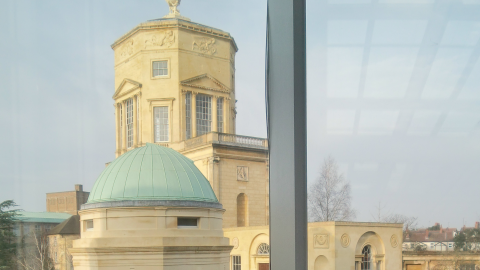Abstract: Let $f$ be a continuous surjection from the compact metric space $X$ to itself.
We say that the dynamical system $(X,f)$ has shadowing if for every $\epsilon>0$ there is a $\delta>0$ such that every $\delta$-pseudo orbit is $\epsilon$-shadowed. Here a sequence $(x_n)$ is a $\delta$-pseudo orbit provided the distance from $f(x_n)$ to $x_{n+1}$ is less than $\delta$ and $(x_n)$ is $\epsilon$-shadowed if there is a point $z$ such that the distance from $x_n$ to $f^n(z)$ is less than $\epsilon$.
If $f$ is a homeomorphism, $(X,f)$ is said to be expansive if there is some $c>0$, such that if the distance from $f^n(x)$ and $f^n(y)$ is less than $c$ for all $n\in \mathbb Z$, then $x=y$.
In his proof that a homeomorphism that is expansive and has shadowing is stable, Walters shows that in an expansive system with shadowing, a pseudo orbit is shadowed by exactly one point. It turns out that the converse is also true: if the system has unique shadowing (in the above sense), then it is expansive.
In this talk, which is joint work with Joel Mitchell and Joe Thomas, we explore this notion of unique shadowing.



